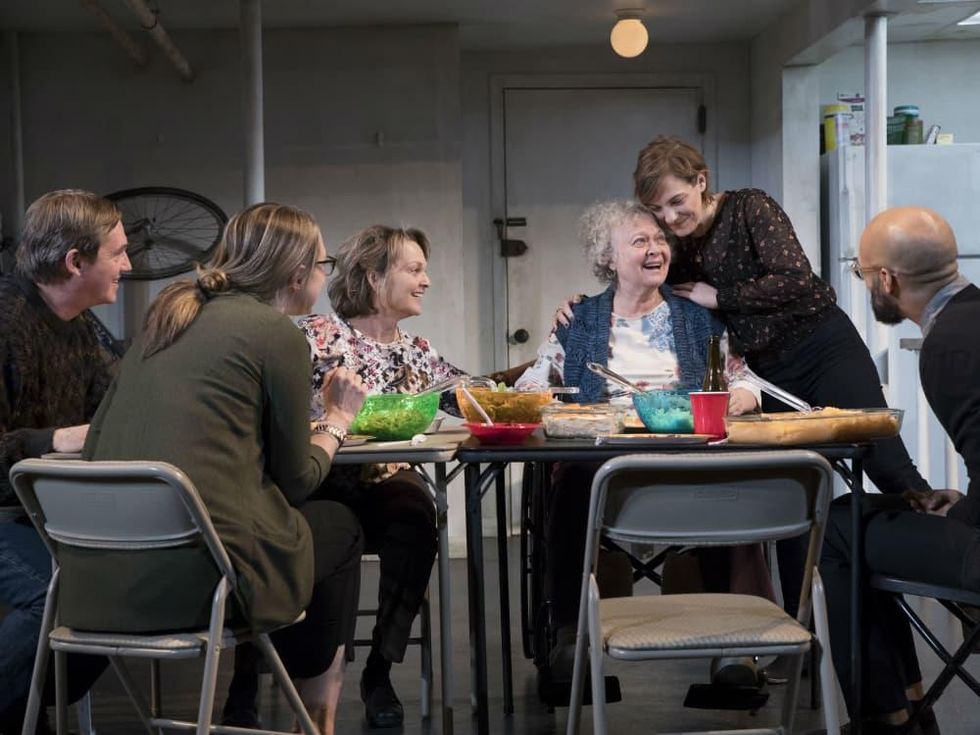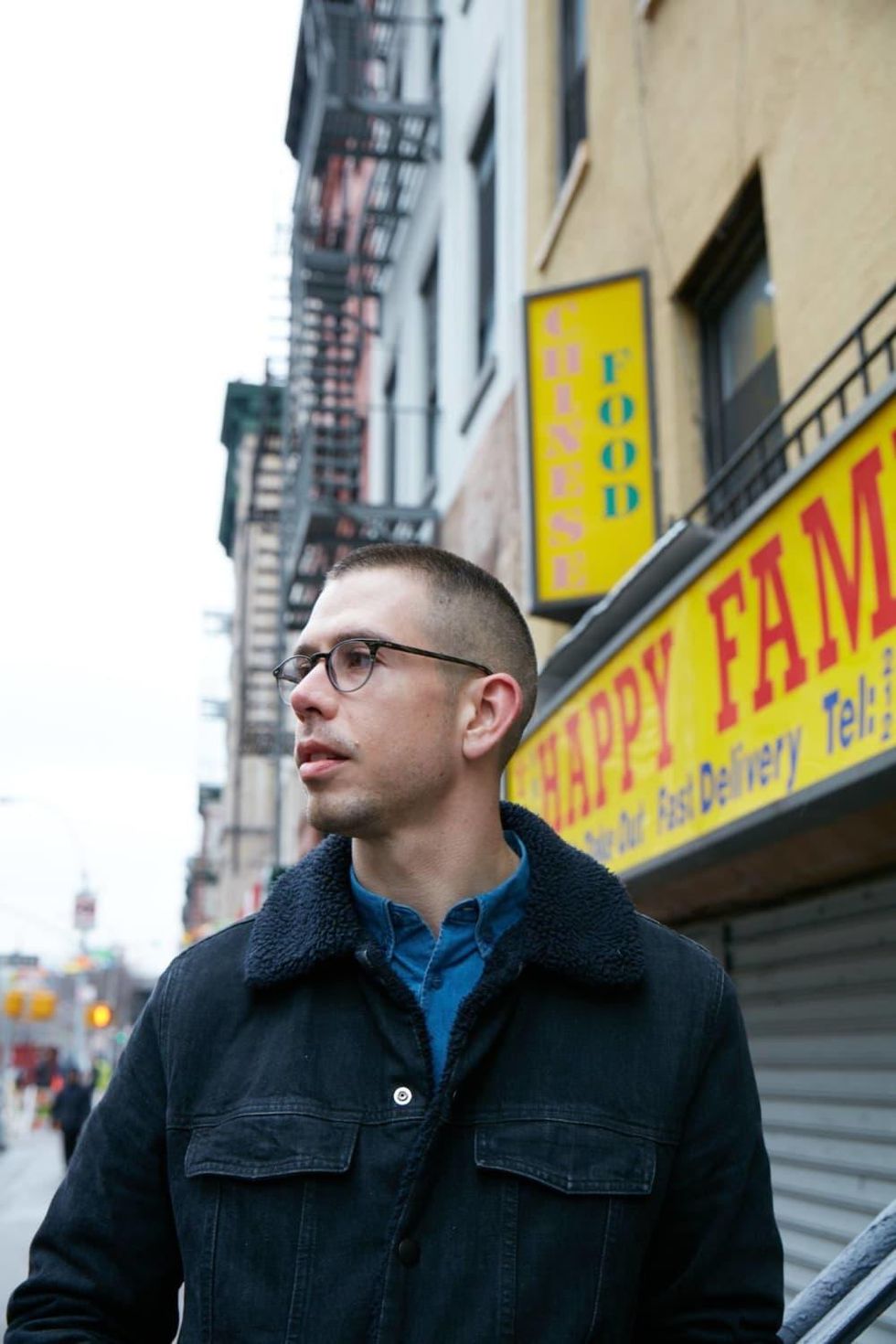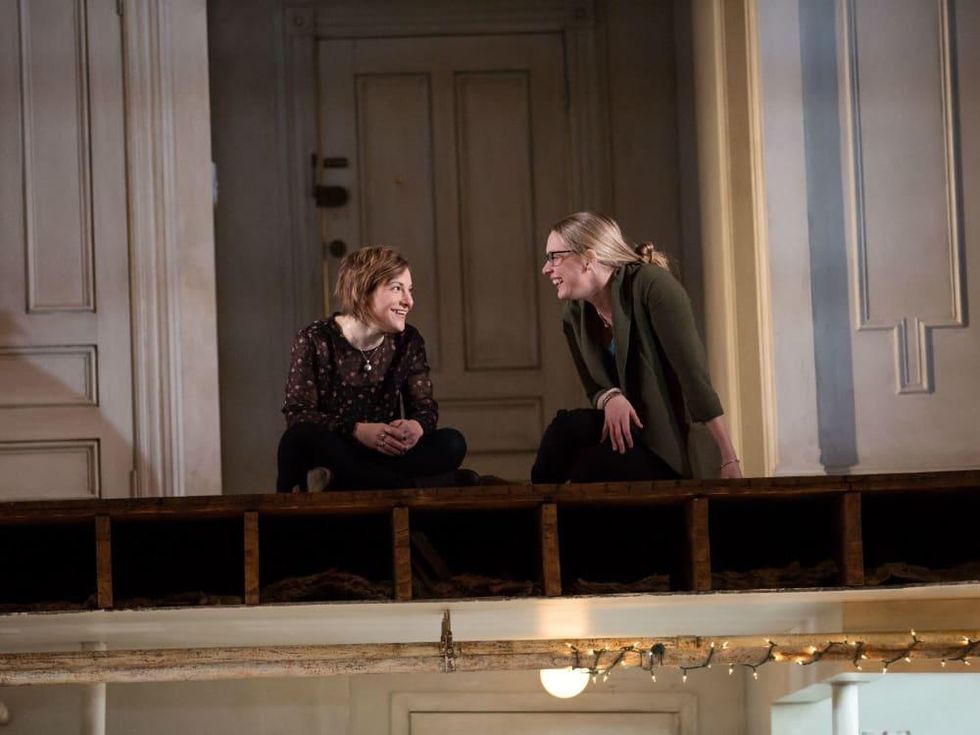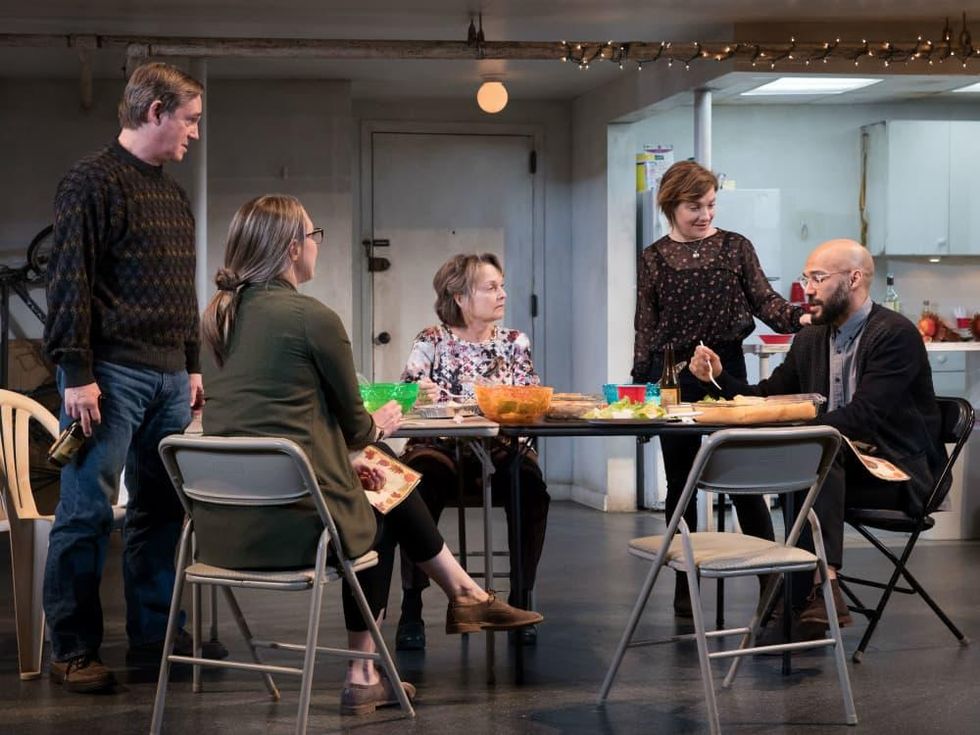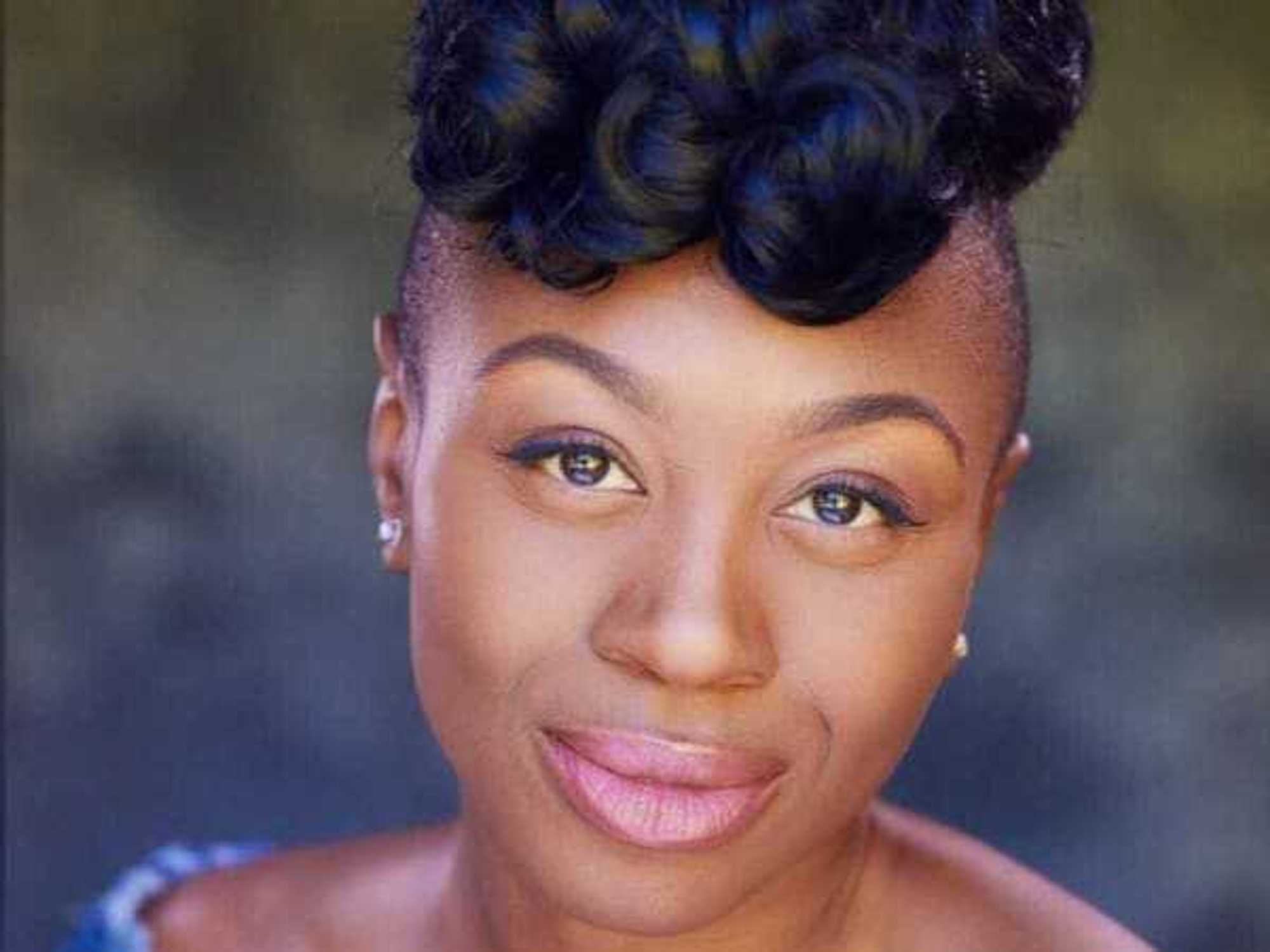Family Drama
A quick convo with The Humans playwright Stephen Karam
Dysfunctional family dramas might be familiar territory for theatergoers, but Stephen Karam's play The Humans redefined the genre when it debuted Off-Broadway in 2015.
The darkly funny story transferred to Broadway in 2016, then moved to an even bigger Broadway theater six months later — highly unusual, and a testament to the production's wide appeal. It went on to win the 2016 Tony Award for best play and was nominated for that year's Pulitzer Prize for drama.
Karam's uproarious, hopeful, and heartbreaking play takes place during Thanksgiving dinner in a ramshackle pre-war duplex in lower Manhattan (David Zinn's Tony-winning set design remains intact for the tour). Millennial artist Brigid Blake has just moved with her boyfriend, Richard, and Brigid's family — father Erik, mother Deirdre, sister Aimee, and grandmother Momo — have driven in from Pennsylvania to celebrate. As darkness falls outside and eerie things start to go bump in the night, the Blake clan's deepest fears and greatest follies are laid bare.
Seattle Rep's literary director, Kristin Leahey, sat down with Karam to discuss his inspiration for the play and what he's most looking forward to with its tour.
Kristin Leahey: What was your impulse behind writing The Humans?
Stephen Karam: I was thinking a lot about the things that were keeping me up at night and that got me thinking about existential human fears: poverty, sickness, losing the love of someone… Was there a way to actually tell a story that might elicit some of those fears — or provide some thrills — while also talking about how human beings cope with them? And by the time I was done, I had written a family play or, as I think of it now, a family thriller.
KL: After working on the 2014 premiere in Chicago and now with the national tour, what are you looking forward to with this new journey for The Humans?
SK: You can probably tell from the play that I'm from Pennsylvania. Any time I do a new play, I'm actually thinking, "Will it ever find its way across the country?" "Will it ever find its way to Pennsylvania or Arizona or Washington State?" My first attendance at a professional theater was seeing touring shows that made their way to the Scranton Cultural Center at the Masonic Temple. I ushered at the Masonic in high school to get free tickets. They were large musicals but never "straight plays."
There's a special magic in taking a play, a piece like this, across the country. I just feel [that it] really connects to what it meant for me to see theater growing up, so I'm excited to see something that I wrote have a chance to travel.
KL: I really admire that your work, such as Speech & Debate, Sons of the Prophet, and The Humans, grapples with immense sociopolitical ideas, but at its core are these tangible, intimate relationships between characters. How do you strike this balance?
SK: Instead of running away from the larger questions we're struggling with, I realized that my plays can come from them. With The Humans, I originally thought the way to address the play's big ideas was a lot noisier, with a lot more bells and whistles, but through the writing process of stripping things away, by the end, I was staring at six damaged and lovely souls, who audiences would watch be hurt and laugh and cry and love. Things become universal, and thus reverberate more precisely. It's sort of the epic via the intimate.
KL: It's interesting considering that sometimes the most intimate of subjects can also be the most political.
SK: I didn't start The Humans by saying, "I'm going to write about the dying middle class." I think that's a losing game, only because you can't make people watch a play like that — at least I don't think so — unless there are complex, multidimensional people at the center of the conflict. That's where audiences invest, when they actually care about the struggle of the people onstage. If I get too bogged down in ideas, I don't tend to write so well.
I feel like my plays become more political by focusing on human behavior. As a playwright, you can't write about what it means to be alive and not be political. And if you're writing about what it means to be alive today, you're going to end up writing a political play. I never would have predicted or imagined that Donald Trump would have become president. Nor would I have ever suspected that somebody with his particular background, trust fund, and golden toilets would be the person who ends up connecting to the Erik Blakes of the world.
I should also note that the play is a comedy. I'm somebody who loves laughing when I'm seeing any play myself. But you can't just tell people a play is funny; you have to let them decide that for themselves. But of course, watching any family interact for 90 minutes is going to be partially, if not largely, hilarious.
---
A version of this interview was originally published by Kristin Leahey, PhD, literary director for Seattle Rep. Original transcription by Annika Bennett.
